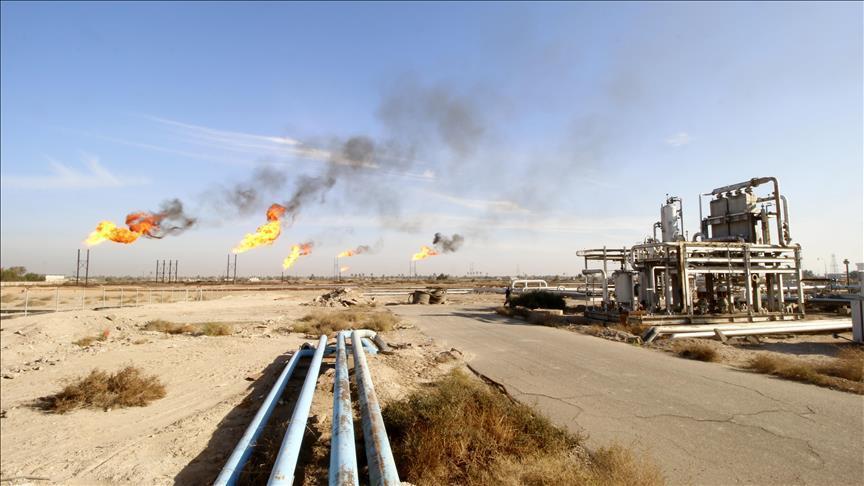Iraq unveiled a project to capture gas at two of its fields in collaboration with US oil field services firm Baker Hughes to halt the environmentally-damaging practice of flaring and reduce Iranian energy imports in OPEC's second-biggest producer, the Iraqi oil ministry said on Sunday.
The project, which will process associated gas from the Nasiriyah and al-Gharaf fields in the southern province of Dhi Qar, will handle up to 200 million cubic feet per day of gas that would otherwise be flared.
Initially planned to start in 2018, the project faced delays and will be completed by the middle of 2024.
The country's oil minister Ihsan Abdul-Jabbar Ismail said at a media conference that the project is a step toward the government's goal of 'capturing all the gas that is being flared, increasing national output of gas, and preserving a clean environment in compliance with international treaties.'
Natural gas flaring, the process of burning off waste or fuel gas has been heavily criticized for its environmental impact. In 2019, nearly 400 million tons of Co2 equivalent were released as a result of flaring.
Iraq is second only to Russia in gas flaring, having burned nearly 18 billion cubic meters (632 billion cubic feet) in 2019, according to a World Bank study published in July 2020.
Iraq has long-term electricity shortages due to a variety of issues, including poor government service delivery, pervasive corruption, terror attacks on the power grid, and Iran's recent suspension of electricity and gas exports due to unpaid bills.
'We will stay on track on the project and will not be late in the future,' Lorenzo Simonelli, Baker Hughes CEO, said at the media conference.
Karim Hattab, a deputy oil minister, said the project includes processing 70 million cubic feet per day of flared gas from Nasiriyah and 130 million cubic feet per day from al-Gharaf.
By Sibel Morrow
Anadolu Agency
energy@aa.com.tr


